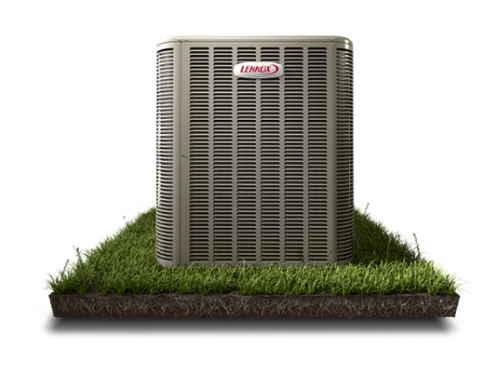Living on the Texas Gulf Coast often means hot and humid summer temperatures. During the winter, Rockport evenings may be chilly and damp. When the nighttime temperatures drop, you need the right heating system to keep you and your family warm.
Rockport homeowners have many options for heating their homes, but the most popular ones are gas furnaces, electric furnaces, and heat pumps. Our team at Sigwald Service Co. can help you evaluate and select the right unit for your circumstances.
Is a Gas Furnace the Right Choice for Your Home?
Today’s gas furnaces mix propane or natural gas with air and burn the mixture to create heat. Once the furnace produces hot air, the it transfers that air to a heat exchanger. The heat exchanger removes the exhaust gas from the air. A fan blows the remaining hot air through your home’s ducts into your living spaces.
The Advantages of a Gas Furnace
Gas furnaces offer many benefits for Rockport homeowners. A gas furnace heats your home quicker than other furnaces do. If you don’t like to wait for your home to heat up on damp, chilly days, then a gas furnace may be the right choice for you.
Gas furnaces also offer some financial benefits. Homeowners who select a furnace powered by natural gas enjoy cheaper energy bills. Natural gas is usually the cheapest energy source in the United States. If your coastal home has a natural gas supply line, a gas furnace may be the most economical and durable choice.
Gas furnaces are available as single-stage models, two-stage models, and modulating models. Single-stage models are often the cheapest option for heating your home. These furnaces blow a consistent amount of hot air when turned on.
Two-stage furnaces are more efficient than their single-stage counterparts. Homeowners may set a two-stage furnace to operate at a lower setting during cool nights. This lower setting can help you save money on energy bills.
Modulating gas furnaces are more efficient than either single-stage or two-stage furnaces. These furnaces adjust their settings in small increments to maintain a consistent, comfortable temperature.
The Disadvantages of a Gas Furnace
Before selecting a gas furnace, homeowners should consider these disadvantages. A gas furnace can present several safety hazards if you do not maintain it conscientiously. A corroded gas line or cracked heat exchanger may cause a gas leak. Improper combustion may cause a carbon monoxide leak.
Another disadvantage of gas furnaces is their price. Besides that, if your home does not have a proper ventilation system, the technician will need to install one. Adding a ventilation system may raise the project’s cost significantly.
Selecting an Electric Furnace for Your Coastal Home
An electric furnace operates by using resistance heating. The process of heating your home starts by setting the thermostat to your preferred temperature. The thermostat sends a signal to the furnace’s control board, which activates the heating elements. Electric current flows through the heating elements and heats them, which produces warm air. The furnace’s fan blows the warm air through your ducts into your home.
The Advantages of an Electric Furnace
Electric furnaces don’t have the same safety hazards as gas furnaces. Since electric furnaces don’t use natural gas, there is no risk of carbon monoxide or gas leaks.
Compared to gas furnaces, electric furnaces have fewer parts. The system consists of a thermostat, a control board, and heating elements. You may spend less on repairs and maintenance when you choose an electric furnace.
If your coastal home doesn’t have proper ventilation or a natural gas line, an electric furnace may be the right option for your home. Due to their simplicity, electric furnaces often have a longer life span than gas furnaces.
The Disadvantages of an Electric Furnace
The major disadvantage of an electric furnace is efficiency. Electric furnaces are not as efficient as their gas counterparts. Texas residents expect higher electric bills during the summer heat. During chilly winter nights, your electric furnace may run frequently to keep your home warm, and this may lead to higher electric bills in the winter as well.
On the other hand, on the Gulf Coast, you may not need to use your electric furnace frequently. However, if you don’t use it often, the system’s parts could lose efficiency. You also might also have heat loss in your home’s ductwork.
When you need to turn on the furnace, you may notice that an electric furnace takes longer to warm the air. A gas furnace heats a home very quickly due to the combustion process. An electric furnace doesn’t heat a home as quickly because it takes time for the heating elements to warm up. The blower fan also needs time to circulate the warm air throughout the residence.
Selecting a Heat Pump for Your Home
A heat pump is another option for heating coastal homes. This heating system consists of indoor and outdoor units connected by lines that run through your wall. This system uses refrigerant to pull heat from outside your home. Depending on the type of heat pump you select, the unit may draw heat from the air, water, or ground. After the heat pump absorbs the heat, the unit passes the air through a compressor to raise the air’s temperature. Warm air enters your home through the indoor unit.
The Advantages of a Heat Pump
If your coastal home doesn’t have the ductwork needed for a traditional HVAC system, a heat pump may be your best option. Heat pumps offer both heating and cooling in one system. To switch from heating to cooling mode, your heat pump reverses the heat transfer process to remove warm air from your house.
Heat pumps offer homeowners more opportunities for customization. If you add a room or workshop to your coastal home, a single-zone heat pump can heat or cool that room independently from the rest of your residence. If you need to heat a large home, you can add several indoor air handlers to create a multi-zone heating system.
Homeowners may also save money on energy bills. Traditional HVAC systems rely on ductwork to distribute air. Over time, your home’s ducts may lose efficiency because of cracks or separation at the joints. Since heat pumps don’t rely on ductwork to distribute air, this system typically has a higher energy efficiency rating. Homeowners can save additional money by turning off the air handlers in unused rooms.
The Disadvantages of a Heat Pump
The main disadvantage of installing a heat pump is the cost. Depending on the size of your home, a heat pump may be more expensive than a gas or electric furnace. Complex heat pump systems with multiple indoor handlers also raise the cost of installation.
Complete Heating and Cooling Solutions
Rockport homeowners can rely on our team at Sigwald Service Co. for all their heating and cooling needs. We can evaluate your situation and recommend the right furnace for your coastal home. After we install your new furnace, you can call us to schedule repair and maintenance appointments. Of course, we perform all the same tasks in the spring and summer for your air conditioning equipment.
Contact our technicians at Sigwald Service Co. today to schedule a new furnace installation for your Rockport home.






